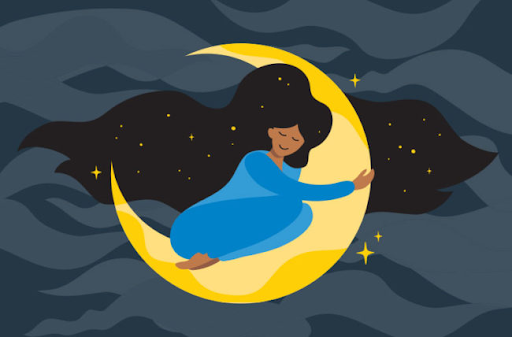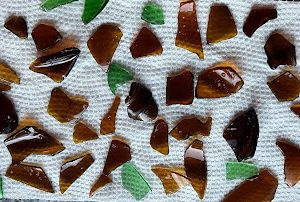The Science Behind Dreams

Cleveland Clinic Health Essentials
During my nightmares, I get to process all the wacky emotions of my day, while also being able to prepare for threatening situations.
For years, I have always loved sharing my wild dreams with my friends, especially after a particularly bizarre one. However, I can never seem to remember most of my dreams. I will wake up knowing exactly what happened, and when I go to share, any memory of it seems to be wiped from my mind. I can usually only remember my nightmares, which is a real Debbie Downer (even if some of them are hilarious). This has brought me to start looking into my dreams to: a. see if they actually have meaning, and b. figure out why I can’t remember them in the morning.
Humans have been analyzing dreams since the Greek and Roman civilizations were first built; however, according to an article in Scientific American, the most plausible theory arose in 1899 when Sigmund Freud published his book The Interpretation of Dreams. He stated that dreams were our subconscious playing out our suppressed desires and wishes. He also said that dreams were trying to resolve conflicts, which our brains masked during our dreams giving them a hidden meaning. More modern interpretations believe that dreams don’t actually carry any significance; according to an article by Abigail Harrison, they are merely electrical impulses that pull together random thoughts and images from our memory.
Another theory (that somewhat explains my nightmares) is that dreams help us process our emotions, especially fear, from the day. When this regulation fails to occur, we end up with nightmares. Other sources say that nightmares are meant to regulate threats, i.e. our brains come up with scary situations to help us learn how to manage a threat if it ever occurs in real life.
The Journal of Neuroscience put together a study with 65 students to see how well our brains remember our dreams. It was known that most dreams occurred during the REM stage of sleep (the deepest sleep stage), so the researchers woke some students up right after the end of the REM stage. These students were more likely to remember their dreams, and the study showed direct correlation between theta waves. The more low frequency theta waves that were present in the frontal lobe, the more likely students were able to remember their dreams. These waves are also stimulated when you are awake and asked to do memory recall, especially about your life. These findings showed that the same part of your brain is activated whether you recall dreams or memories.
Another study showed that the bizarre, emotionally inducing, vivid, intense dreams that are most likely to be remembered (like the ones that I often share with my friends), are linked to the amygdala and hippocampus. The amygdala is the part of our brain that is involved in the processing and remembering of emotional reactions. The hippocampus is the part of our brains that is linked to the consolidation of long-term and short-term memory.
UC Berkeley conducted a study about the link between emotion and dreaming, which showed that the less REM sleep (or less dreaming) a person experiences, the harder it is for them to process emotions in their daily life. While our dreams are not real (which is a big relief for me and my wild dreams), the underlying emotions that we process in them certainly are. Dreaming is incredibly important, as when we don’t process emotions, especially negative ones, it can lead to worry and anxiety.
After doing this research, I am no longer worried about my bizarre nightmares and lack of remembrance of my dreams. The way I see it, during my nightmares, I get to process all the wacky emotions of my day, while also being able to prepare for threatening situations. I also realize that I can remember my dreams right when I wake up because I must be just getting out of the REM stage. One question still unanswered is: why do I forget my dreams later on in the day? We’ll save that for another time.
Now, I will share a funny little anecdote about my favorite nightmare (I know that sounds weird, having a favorite nightmare, but trust me, it’s pretty awesome). I was being chased around a table by someone with a knife, who then proceeded to cut my arm as I fell backwards off a ten-story balcony into a courtyard. The crowd watching us then proceeded to chant my name. Now, I am incredibly grateful that this nightmare was not real, because let’s be honest, I would not survive a fall from ten stories. However, I did find it interesting that when I woke up, I had learned that my sister had been trying to wake me up for a while (I am a very heavy sleeper). She decided to scratch my arm (hence the knife cut in my dream) in vain attempts to wake me. She then repeatedly called my name (which explains the crowd chanting my name) which finally woke me up.
By Leslie Baker ‘24, Clubs and Classes Editor
24lbaker@montroseschool.org















